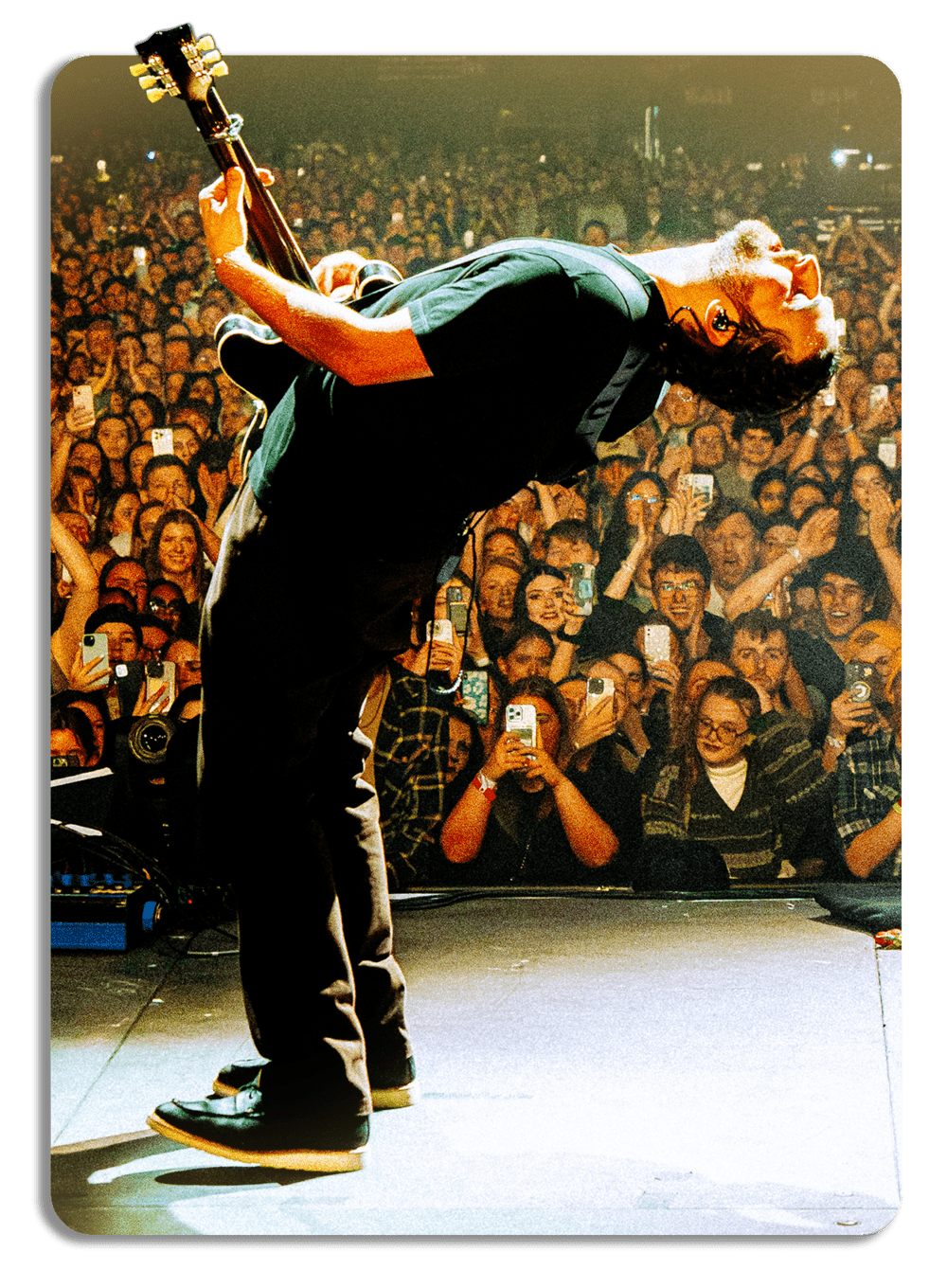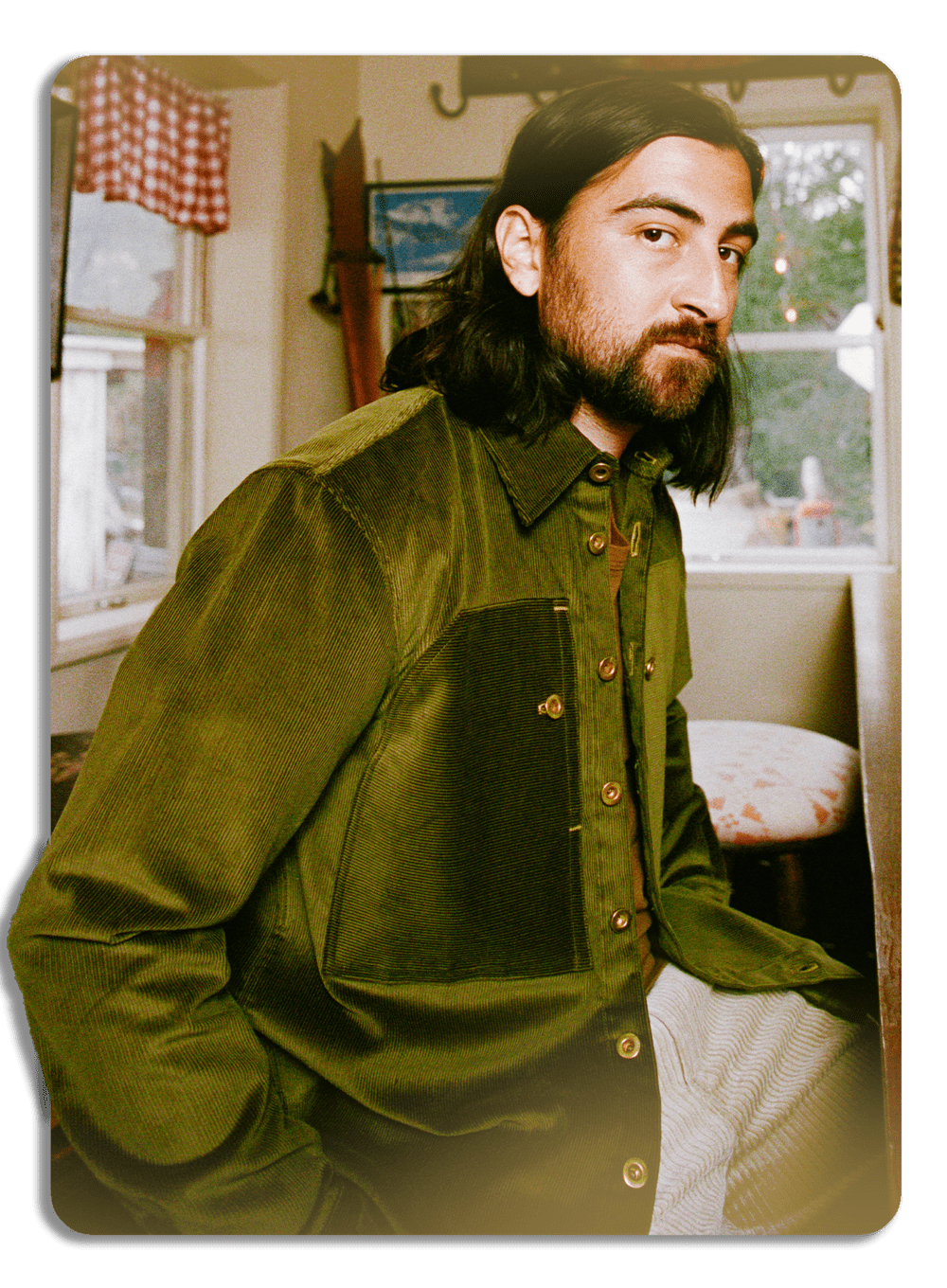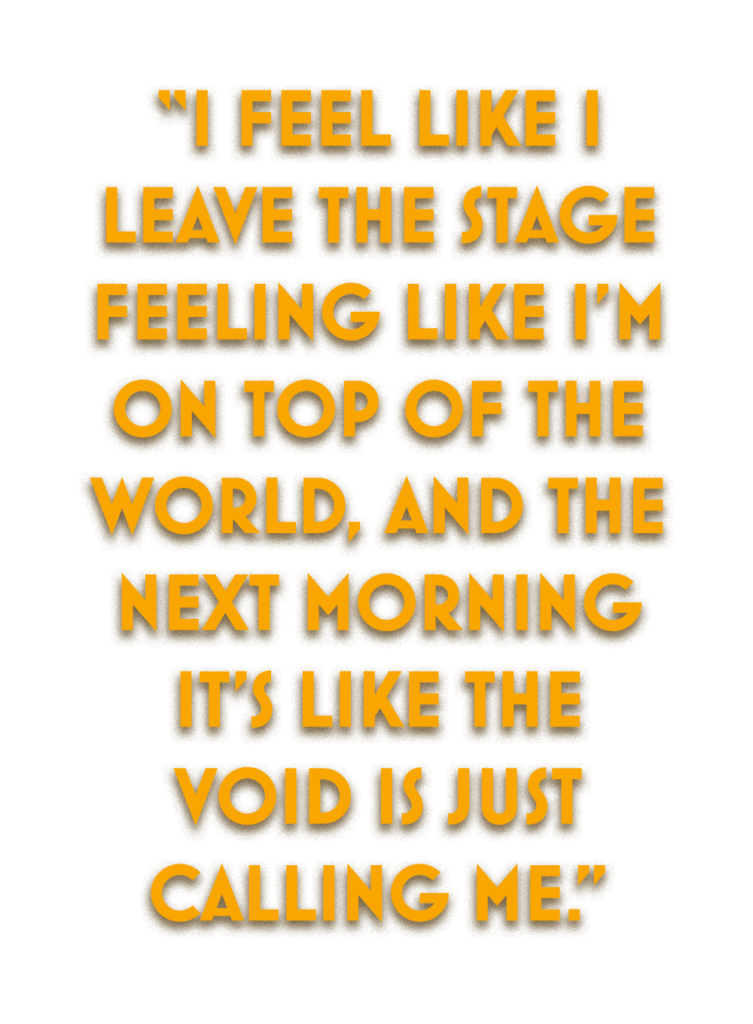Vermont’s sprawling farm land and hiking trails have been ingrained into the saga of Kahan. Returning there uncorked an identity he’d tried (and failed) to escape in his attempts to make ballad-y pop hits in New York and Los Angeles. Out poured Cape Elizabeth and, eventually, Stick Season. If the word weren’t so coded and trite, you might even call it authentic.
The irony is that tapping into that authenticity is exactly what’s elevated him to the utterly unnatural world of music superstardom, of SNL performances and Sesame Street appearances. It’s a dichotomy he’s still figuring out.
In February, Vanity Fair released a “Noah Kahan Gets Ready for the Grammys” video, in which Kahan discusses wearing his first fitted suit after borrowing a friend’s dad’s wedding attire his whole life. He jokes about feeling like he’d “lost myself completely in all this” when he turned down chocolate covered strawberries at the Beverly Hills Hilton because he needed a nap. During our second conversation, he facetiously calls his hotel room’s lack of a mug for his tea “the worst thing that’s ever happened to me, for sure.”
“These are the issues that are in my life,” he laughs. “Nothing for real is happening here.”
But, he is experiencing real things having real impact. “Back home in the studio, the process is a really honest process emotionally. I find out where I am, and if it’s good, it’s good, and if it’s bad, it’s bad. But I stay there,” Kahan says. “On the road, I feel like I leave the stage feeling like I’m on top of the world, and the next morning it’s like the void is just calling me. It’s been hard for me to find a time to be creative, which has been a really difficult side effect of this year.”
Explaining how he tries to stay true to what brought him all this acclaim, Kahan anxiously chases his own thoughts: “I think I had to make a decision a long time ago, way before this shit happened to me, that I wasn’t a good enough actor to be cool or to be super social or to be this character… I feel like I’ve always been like, if I’m gonna have success, it has to be just the way I like to do things, the way I like to be. It has to be based on how I really feel and I can’t put on masks. I put on nice clothes, and I feel like I’m wearing a…”
He rubs his eyes and resets.
“Look, I’ll put it like this: The imposter syndrome is what I think makes me feel maybe relatable to people, or makes me seem like I’m doing well with all of it and staying true to myself — but it also makes me feel like I don’t belong. And so it’s this hard line to walk where yeah, I can be in a five-star hotel room getting my fitted suit on and I can come across feeling like I don’t belong there and that makes people feel like they’re like me, but the truth is I do actually feel like that. And it’s a shitty way to feel.

“The truth is, I’ve been feeling that my whole life, so this is kind of just an extension of that feeling… It feels really good to know that I’ve [been able to relate to people] just being me, but it is really hard to sustain this feeling of being an outsider in all this. I feel like that’s been the hardest thing about some of my success.”
And the cycle continues: the vulnerability that made Kahan appealing gets magnified by the fame it’s wrought, which he in turn speaks of with vulnerability. Witnessing the thought pattern in action, it’s easy to see where he got the name for his debut LP and why he repurposed it for his mental health foundation, The Busyhead Project.
In the plot of his career, Kahan’s wellness advocacy runs parallel to his New England upbringing. Giving it equal footing in his lyrics wasn’t enough. “A lot of the mental health stuff, I felt they would have to listen to my music [to get it],” he says. “And then it’s like, ‘What do I do with this guy? Sad. He’s sad. Whatever.'” He expresses concerns over “accessorizing” his struggles “just to maybe unconsciously elicit emotion instead of bringing together a solution.”
So he created an actual solution. The Busyhead Project has raised over $2 million in its first year to support mental health organizations across the US and Canada. In a statement marking Mental Health Awareness Month, Kahan announced that The Busyhead Project Action Village, connecting fans with local mental health organizations and voter registration courtesy of HeadCount, will be present at every upcoming US stop of his “We’ll All Be Here Forever Tour.” There’s a new partnership with music industry mental health nonprofit Backline, linking industry professionals and their families with invaluable resources.

Kahan recently started meeting with more of the partner organizations to better understand how The Busyhead Project can help and “just to say thank you to these people.” He’s involved in every hiring call for the touring Village. Finding ways to be hands-on even as his music takes off is more than just legitimizing what he sings about — though it’s that too. “I want someone that fucking hates my music to go get help,” he says.
He explains that many decisions around his music career can seem “flighty,” with people on all sides arguing over the choices he makes. “Starting a charity like this is something just good,” he asserts. “It makes me feel good and it makes me feel like I don’t have this paranoid thought of, ‘Am I doing this for a selfish reason?'”
Even so, Kahan says it can be “a recipe for a nightmare from an imposter syndrome sufferer standpoint.” Giving space for the “ups and downs” of his own mental health, he admits, “It makes you feel like such a fucking fraud when you’re lying in bed depressed, not taking care of yourself, knowing that you’re putting things out in the world telling other people how to take care of themselves. It makes you feel like a hypocrite. The intent of the charity and the intent of what I’m trying to say to the kids listening to my music is that it’s always worth striving for, no matter what the next day looks like for you, striving to make things better for yourself and for others. I know that in my heart.”

